Interview : “300 Hectares Of Degraded Land Have Been Restored”
- Par Kimeng Hilton
- 04 Oct 2023 14:12
- 0 Likes
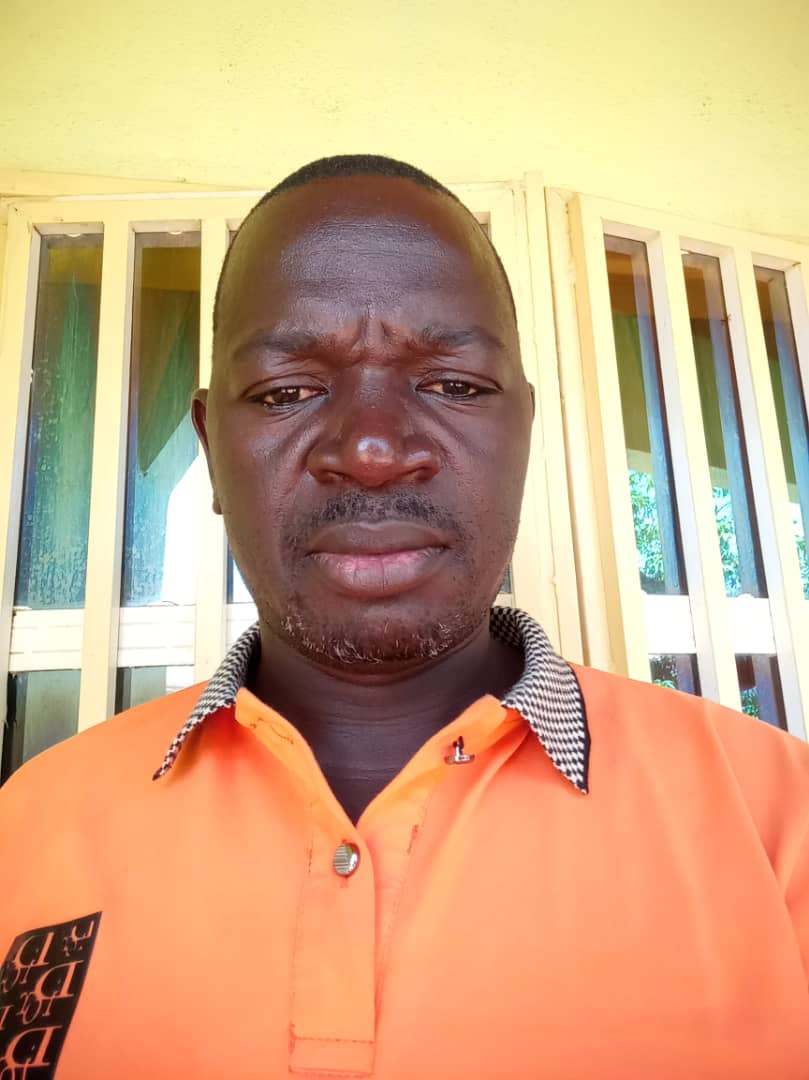
Bonné Guisatta, Head of Forêts et Développement Rural, FODER association’s component of the project, Ecosysteme du Nord Cameroun, EcoNorCam: Vers une approche intégrée du paysage.
What is EcoNorCam all about?
The project, Ecosysteme du Nord Cameroun, EcoNorCam: Vers une approche intégrée du paysage (North Cameroon Ecosystem, EcoNorCam: Towards an integrated landscape management), has a lifespan of four years - from January 2021-December 2024. EcoNorCam is financed by the European Union and implemented by a consortium of three Non-governmental Organisations. These are the Wildlife Conservation Society, WCS, le Centre pour l’Environnement et le Développement, CED and Forêts et Développement Rural, FODER.
What does the project seek to achieve, and in which areas?
The project is based in the North Region, in and around Benue National Park. The park covers Benue and Mayo Rey Divisions in the North Region. The project seeks to contribute to the improvement of natural resource governance and wildlife conservation. Through land use governance (planning at local level), the joint management of sports hunting zones, capacity-building for wildlife conservation and food security (FODER’s main component). This entails assisting communities around the park to put into practice climate change-resilient farming techniques. Through ecological and agro-forestry innovations, which are promoted in local communities.
Community people are also assisted in the exploitation of Non-timber Forestry Products, NTFPs. The goal is to help communities to diversify their sources of income. Similarly, communities are sensitised to use alternatives to firewood in order to reduce the pressure on the environment and protected areas (Benue National Park and sports hunting zones). This is why improved firesides have been introduced. We also plan to introduce the use of ecological charcoal. FODER also carries out some activities under Component 1 of the project concerning land use governance or planning. We have carried out sensitisation and studies on the risks and practice of corruption, and evaluated the degree of perception of corruption and the stakes of governance around Benue National Park. The aim is the overall fight against corruption and the promotion of legality in the management of natural resources.
Under Component 3 (food security), FODER seeks to reduce the pressure on the environment because people tend to use more space than necessary for farming. With the techniques we teach them, they are able to make more yields on smaller plots of land. Thereby avoiding conflicts with protected areas.
What else has FODER accomplished since January 2021 in terms of food security around Benue National Park?
Much has been done. First, after sensitising, mobilising and training community people, we have been able to set up 7 duly registered, functional farmers’ cooperatives. The cooperatives put into practice the different improved, agro-ecological farming methods such as zai, compost manure, bio-pesticides, terracing, etc.
The 7 cooperatives are based in 7 different communities in three subdivisions - Ouro André and Agorma in Lagdo Subdivision; Banda and Dobga in Tchollire Subdivision, and Mboukma, Pani and Larki in Rey Bouba Subdivision. All of them are located in Benue and Mayo Rey Divisions of the North Region. These groups serve as intermediaries to their communities by spreading the knowledge and skills they have acquired from the project.
What is the membership of the 7 cooperatives?
They have more than 70 registered members, with almost 70 per cent of them women. While the remaining 30 per cent are young men. If we add the number of project admirers who replicate cooperative activities, we have about 200 members. All the 7 cooperatives are functional and carry out agricultural projects like cultivating, stocking and selling grain. The cooperatives are doing fairly well.
I understand the project also runs an adult literacy programme.
Yes, last academic year we introduced functional adult literacy classes in four schools as part of capacity-building and training. This was at the request of female project beneficiaries. The programme is carried out in collaboration with the Ministry of Basic Education. The adult literacy centres are in Na’ari in Lagdo Subdivision; Dobga and Banda in Tchollire Subdivision, and Mboukma in Rey Bouba Subdivision. Through the classes, we assist learners to read and write in order to better manage their groups, group resources and personal finances.
In the first year of the classes, we had an enrolment of 137 women and a man, giving a total of 138 learners. In the end-of-year examinations, learners scored about 70 per cent pass. We are preparing another academic year by October 10, 2023.
What efforts have been made to restore landscapes and soil fertility to boost crop yields and assure food security?
We have so far restored about 300 hectares of degraded land, using compost manure, and to some extent, agro-forestry. The 300 hectares belong to the 7 cooperatives and the individual farms of cooperative members. Meanwhile, the putting in place of farmers’ cooperatives is going on gradually. This year, three other cooperatives will be set up, giving a total of 10 cooperatives in the 10 communities we work.
EcoNorCam has constructed about 1,500 improved firesides in homes in the project area. The firesides are constructed by 30 women who were selected and trained by the project. They move from village to village, helping women to construct improved firesides in their kitchens. Improved firesides are constructed using clay soil, thatch and stones. They have provision for a chimney which collects the smoke and makes cooking more comfortable.
The other advantage of improved firesides is that the flames and heat are concentrated under the pot, thereby making cooking faster. These firesides use less fuel wood, thereby reducing the pressure on Benue National Park and the environment in general. Moreover, the material used to construct improved firesides is readily available locally.
The project has also trained 30 trainers from different communities in improved agricultural practices. They move round training assisted group farmers. In the area of agro-ecology, the 7 cooperatives have so far planted about 1,000 cashew nut plants, covering about 10 hectares. Some two hectares were also planted with fruiting trees that help in soil restoration. These trees are able to attract animals to defecate around them. And the dung helps in enhancing soil fertility. On the other hand, fencing was done for about 8 hectares of fruiting trees or orchards, using spiked trees. Whose leaves also help in improving soil fertility.
Now, let us talk about project implementation. How is this carried out?
FODER’s component of EcoNorCam is implemented by a team based in Garoua, alongside three field assistants or facilitators. Their work is overseen by the head office in Yaounde. Facilitators sensitise, train and mobilise community people. There is a facilitator for farmers in Sports Hunting Zones 1 and 2 in Tchollire Subdivision, which is located south of Benue National Park. The second facilitator takes charge of farmers in Sports Hunting Zone 9 in Rey Bouba Subdivision. While the third covers Sports Hunting Zones 7 and 8 in Lagdo Subdivision. The team in Garoua only comes down to the field for monitoring, counsel and instructions, which are implemented by the assistants or facilitators in collaboration with project beneficiaries.
You have just over a year to the end of EcoNorCam in December 2024. What is the level of attainment of project objectives as we speak?
Overall, we are at 70 per cent attainment of project objectives. We will cover the remaining 30 per cent in 2024 and then assure good monitoring to consolidate the gains.
What are the main project challenges so far?
The first challenge is linked to the appropriation of innovations by community people. People are so used to abusing chemical fertilizers, which are largely responsible for degrading soils. And when new, improved farming methods are introduced to those so used to chemical fertilizers, some level of resistance can be expected. We had to step up efforts to bring such people to understand that the old way of farming should be dropped. And they finally did - after much sensitisation.
The second challenge concerns the use of improved fireside. There was resistance amongst women who knew only the traditional three-side fireside. It was therefore not easy to convince them to drop what they had known and used throughout their lives. But the first set of women who accepted the innovation helped to sensitise other women to take the cue.
How has work been going on with other development partners on the ground?
Joining efforts with other development organisations in the project area has not been easy. Development approaches are not the same, and it is often difficult to come to a common understanding on how to go about field work. Others see in this a conflict, but there is none! It is however a challenge to avoid carrying out the same activities in the field. We hope to eventually overcome it.
There is another project implementation difficulty. The population in the project area has tripled over the years as a result of the Boko Haram insurgency in the Far North Region. Which has displaced many people who have taken refuge around Benue National Park. As a result, some people have settled in wildlife transhumance corridors, wh...
Cet article complet est réservé aux abonnés
Déjà abonné ? Identifiez-vous >
Accédez en illimité à Cameroon Tribune Digital à partir de 26250 FCFA
Je M'abonne1 minute suffit pour vous abonner à Cameroon Tribune Digital !
- Votre numéro spécial cameroon-tribune en version numérique
- Des encarts
- Des appels d'offres exclusives
- D'avant-première (accès 24h avant la publication)
- Des éditions consultables sur tous supports (smartphone, tablettes, PC)






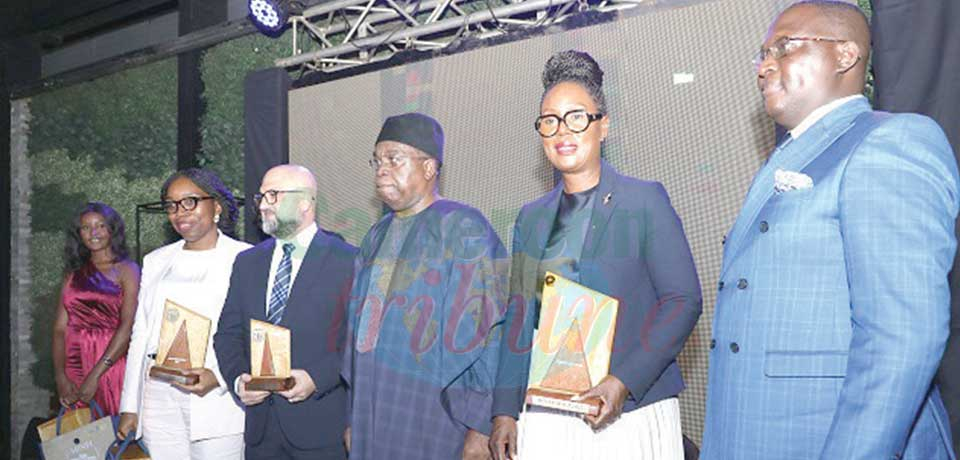
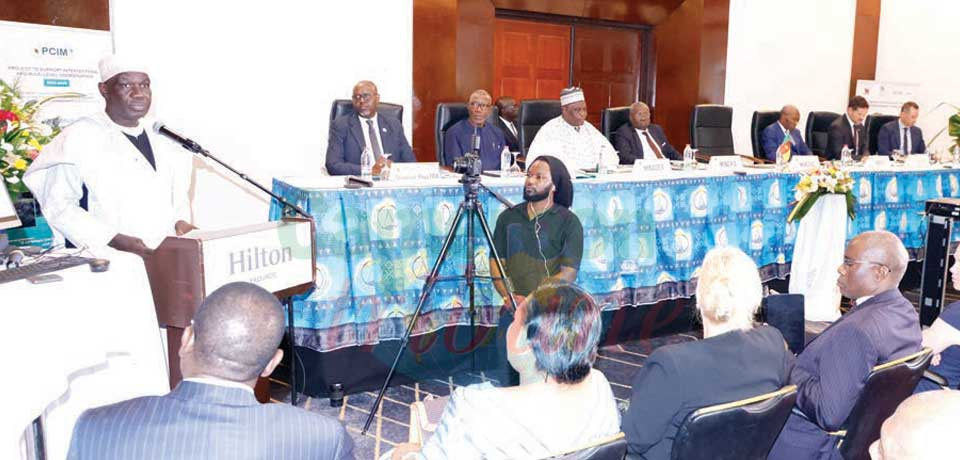
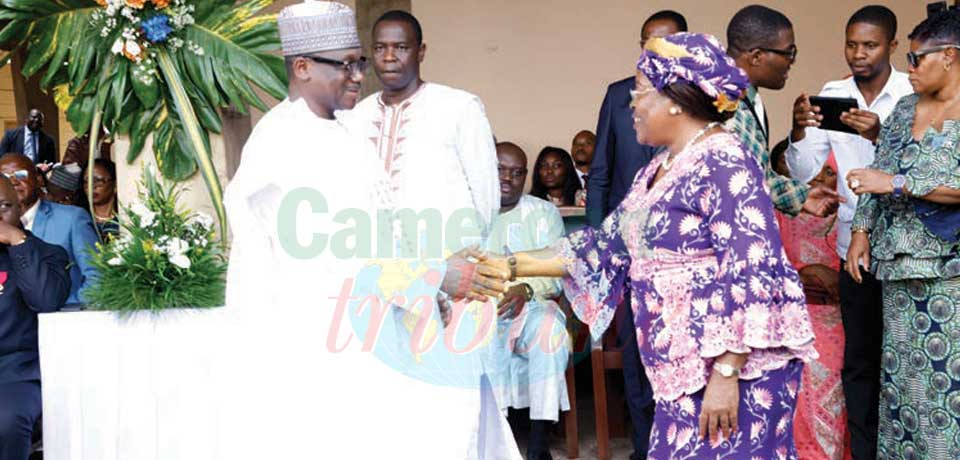
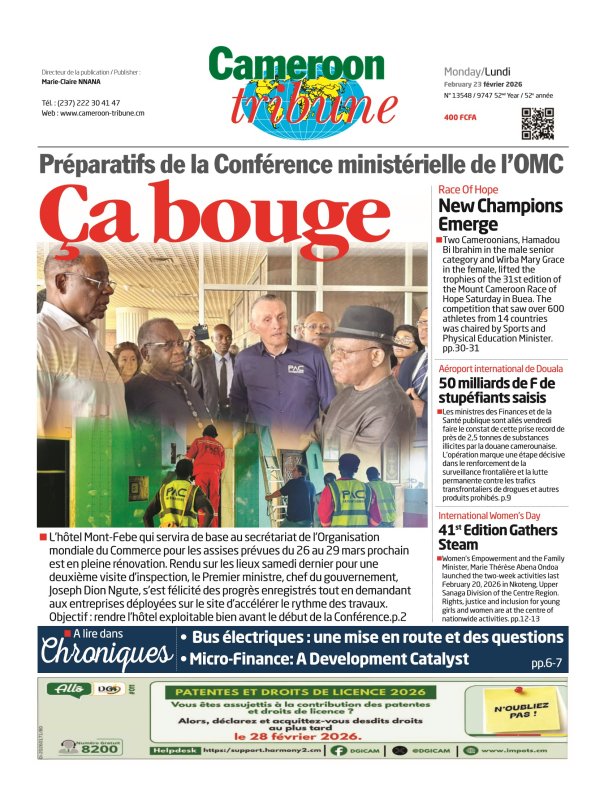




Commentaires